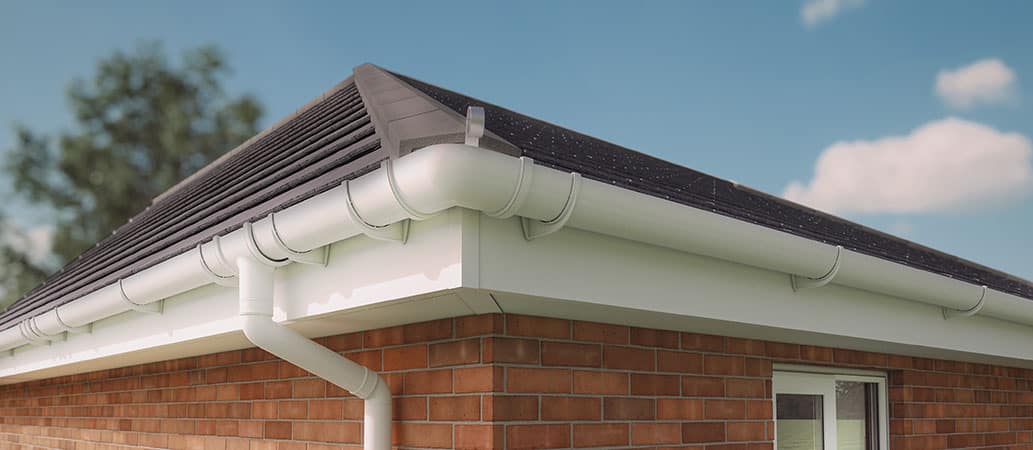
Timber fascias play a crucial function in the architectural aesthetic appeals and structural stability of a structure. These horizontal boards installed at the edge of roof eaves not just enhance the visual appeal of a structure but likewise serve useful functions vital for its longevity. This article dives into the significance of timber fascias, the product choices readily available, and important maintenance practices to guarantee they stand the test of time.
A timber fascia is a long, straight board that runs along the roofing system's edge, typically beneath the overhanging edge of the roofing. It prevails in both residential and industrial buildings and is frequently painted or stained to match the overall architectural design. By covering the ends of rafters and supplying a finished seek to the roofline, timber fascias enhance curb appeal while using substantial practical advantages.
Protection of Roof Structures: Timber fascias prevent moisture from entering the roof, securing rafters and underlayment from decay and rot.
Visual Appeal: The fascia board uses a decorative finish to the structure, connecting in with the general style theme.
Assistance for Gutters: Fascias offer an anchor point for gutter systems, guaranteeing the safe and effective drainage of rainwater.
Vermin Deterrent: By covering the rafter ends, fascias help to keep critters from nesting in cavities that could form in the roof's structure.
When choosing materials for timber fascias, numerous options are available, each with distinct advantages. Below is a breakdown of the most typical products utilized:
| Material | Advantages | Downsides |
|---|---|---|
| Softwood | Affordable, lightweight | Prone to warping and decay if unattended |
| Wood | Long lasting, dense, and aesthetically pleasing | More expensive, heavier to deal with |
| Engineered Wood | Resistant to moisture and bugs | Minimal natural look compared to solid wood |
| Composite | Long lasting and low maintenance | Can appear less authentic in style |
Timber fascias provide many advantages that contribute to both performance and looks. Here are a few of the primary benefits:
Aesthetic Versatility: Timber fascias can be stained, painted, or left natural to match a building's design.
Sustainability: The use of responsibly sourced timber can contribute to sustainable building practices.
Relieve of Installation: Timber fascias are relatively easy to set up, making them a popular choice among home builders and specialists.
Customization: Timber can be easily formed and cut to fit unique architectural styles.
Insulation Properties: Timber has natural insulation residential or commercial properties, helping improve the energy effectiveness of a home.
While timber fascias are attractive and practical, they do require routine maintenance to guarantee longevity. Below are necessary maintenance tips to keep them in prime condition:
Regular Inspection:
Cleaning:
Protective Coating:
Seal Cracks:
Look for Pests:
Q1: What wood types are frequently used for timber fascias?A1: Commonly utilized wood ; they are vital parts that protect essential roof structures and improve overall appeal. Comprehending the product options, benefits, and maintenance requirements will guide house owners and contractors in making informed decisions. By investing time and care into timber fascias, one can guarantee their continued functionality and visual appeal for years to come.
species consist of pine, cedar, and redwood due to their toughness and attractive appearance. Q2: How typically do I need to preserve my timber fascias?A2: Regular assessments need to be done at least biannually, with cleansing and protective finish checks carried out every 1-3 years depending upon the wood type and finish. Q3: Can I install timber fascias myself?A3: While experienced DIY lovers may have the ability to install timber fascias, it is recommended to hire a professional for optimum results, especially regarding fitting and sealing. Q4: What surfaces are best for timber fascias?A4: Weather-resistant paints and discolorations that allow the wood to breathe are suggested to secure against wetness and UV damage.Q5: Are timber fascias environmentally friendly?A5: When sourced from sustainably handled forests, timber fascias can be an environmentally friendly building option. Timber fascias are not just visual additions to your home's architecture
No Data Found!

